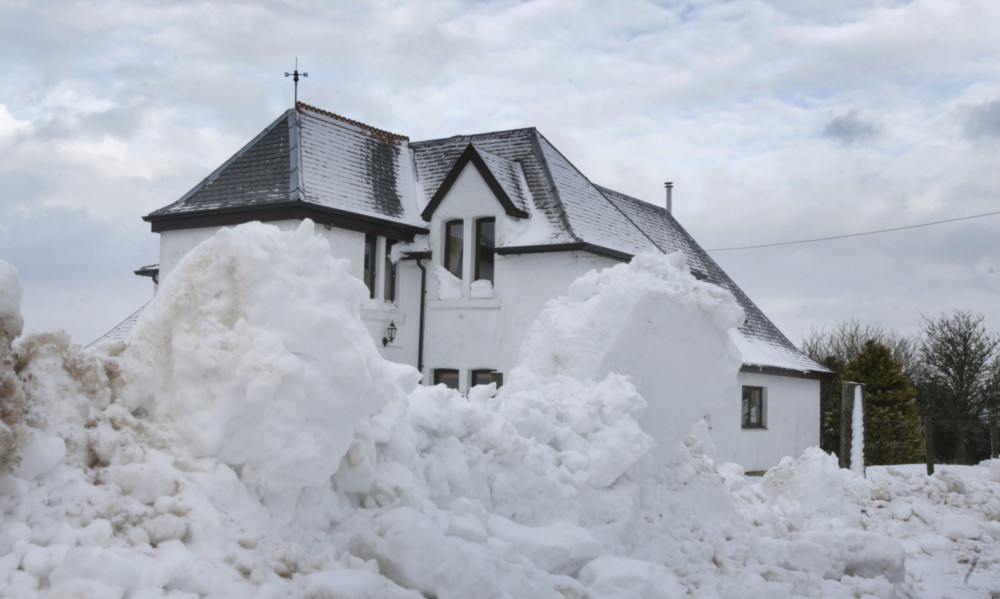
Richard Mabey, author of Turned Out Nice Again: Living With The Weather, told Gavin Sherriff The Honest Truth about our national obsession with the weather and how it affects us.
Is snow in March really that unusual?
Having looked through weather diaries over the last 200 years, it’s much more common than you’d think. It’s the persistent low temperatures that are unusual. Normally when we get snow in March it goes away quite quickly.
What we’ve had is three months of unremittingly cold easterly winds with a lot of snow, and that is unusual.
However, I’m old enough to remember the winter of 1963 and this is nothing compared to that.
There was snow on the ground for two and a half months and for the whole of that period the temperature barely rose above zero. When the snow finally started to melt, having been there since early January, the meltwater floods were appalling.
What’s behind our national obsession with the weather?
It affects our mood, health and, quite often, our income. It affects the state of the nation’s economy. It can even affect when you die. In Britain we have a weather pattern that is almost totally unpredictable. If you live in Canada, for example, you know you’re going to get three feet of snow for four months of the year. You deal with it and there’s not a whole lot to talk about. We don’t know whether we’re going to wake up one morning and find the weather continues like that until spring, as it has done this year. That makes it hard to cope with we can’t acclimatise to it.
Why are we fascinated by unusual weather?
Some of the effects it produces are wonderful. A couple of days ago someone phoned me up and told me they had seen a horizontal rainbow a straight line parallel with the horizon.
We’ve had some amazing things in Norfolk thanks to wet snow combined with a fierce wind. Sometimes the wind catches the soggy snow at the end of a lawn and starts rolling it up like a Swiss roll. They’re called snow rollers.
Are we too negative about the weather if it’s not too hot, it’s too cold?
I think it’s a defence mechanism. If we raised our expectations too high, there would be a danger that we’d be frequently disappointed. The British also feel guilty about good weather. When we have sunshine at a strange time of the year you’ll hear people saying: “But we’ll pay for it!” We don’t want to get carried away with the idea that good weather will go on for ever.
Why do so many of us think the summers of our childhood were better?
The belief that at some time in the past we had much more beautiful springs and summers is a fantasy. It’s a necessary fantasy, because while the weather is horrendous, we need to be able to imagine having those wonderful summers again.
How can weather affect our health?
I’m not sure anyone fully understands why a sunny day is nice for us, but the kind of weather that’s physically unpleasant is precisely the kind of weather we have been having recently grey, bitterly cold, snowy,
sunless and windy. Wind chill is physically and psychologically depressing.
How else does weather influence us?
Our language is full of meteorological metaphors like brainstorm, quick as lightning or a face like thunder. English wouldn’t work as well if we stripped out all the words and phrases associated with the weather they enrich our language.
Is it true herrings have rained from the sky?
Every part of Britain occasionally has whirlwinds offshore called water spouts, and these can come inland.
In East Anglia, when herrings were plentiful, a water spout could whirl large numbers of fish several hundred feet up into the sky. If there was a decent on-shore wind blowing they’d rain down on coastal towns.
Will climate change make it easier to accept odd weather?
I think everyone is confused. Until a couple of years ago it was referred to as global warming and many assumed summers would be warmer.
However, the last three years have been very different weather-wise. It’s probably to do with climate change, but it could just be a phase.
Do we have a selective memory for weather?
There was a very hot summer in 1975 but no one remembers it because there was plenty of water.
People remember summer 1976 for being particularly hot because there was a drought.
Then the Government appointed Denis Howell as the Minister for Drought and the next day the heavens opened!
Most remarkable weather you’ve seen?
A couple of weeks ago I had to take a long journey at midnight. The snow seemed to be coming in sideways like a white sandstorm and causing ripples on the road like sand does. It was scary because we’d had two weeks of solid rain and every few hundred yards I hit flooding across the road. Plunging over snow dunes and into lakes, my heart was in my mouth.

Enjoy the convenience of having The Sunday Post delivered as a digital ePaper straight to your smartphone, tablet or computer.
Subscribe for only £5.49 a month and enjoy all the benefits of the printed paper as a digital replica.
Subscribe